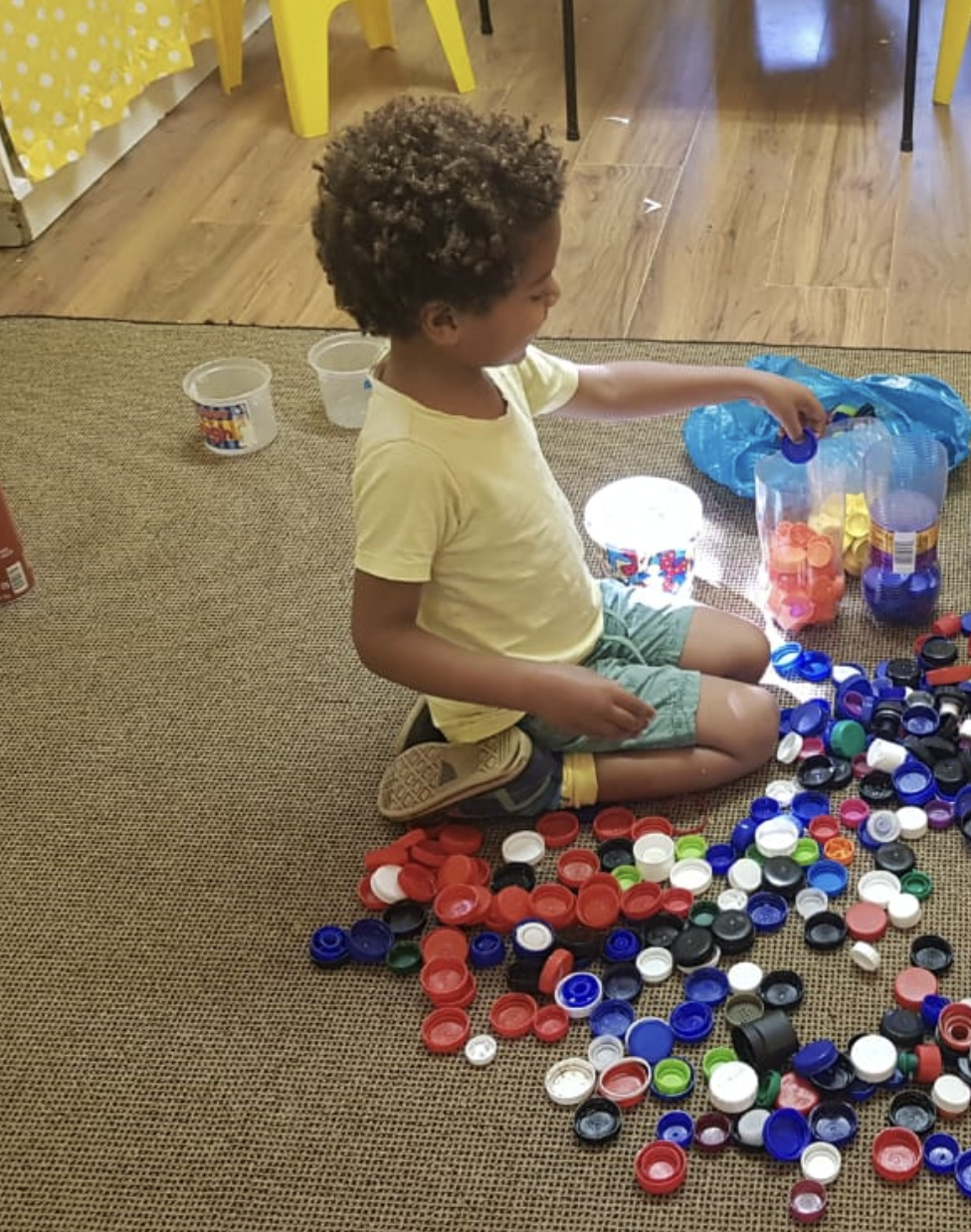.jpeg)
In South Africa, many children live on the edge – between risk and resilience, between surviving and thriving. But when a trusted adult is consistently there, that child stands a far better chance of growing up safe, confident and connected. Whether you’re a parent, a gogo, a neighbour, or a community volunteer, your presence can be the game-changer in a child’s life.
This isn’t about money or degrees. It’s about small, everyday actions. Being there – emotionally, physically and consistently. Holding their hand, listening to their stories, laughing with them, crying with them. Just showing up. Every day. That’s how we say: “You matter. I see and hear you. You’re not alone.”
By the age of five, a child’s brain is 90% developed. But it’s not fancy toys or apps that grow that brain – it’s love. Conversations. Eye contact. Hugs. Play. When a child feels seen and heard, their sense of safety strengthens, their confidence grows, and their chances of thriving skyrocket.
Research also shows that consistency is key. When adults are reliably present, children build resilience. They learn to bounce back from setbacks because they know someone has their back. And that presence doesn’t need to be perfect – it just needs to be real.
Children who experience consistent, responsive care – from anyone in their life – learn to regulate emotions, build trust, and tackle the world with confidence. This kind of secure attachment shapes everything from school performance to relationships later in life. And when life throws challenges, it’s that reliable presence that builds resilience. When a child knows, “Someone’s here for me, no matter what,” it protects them from the worst impacts of trauma.
Local heroes making presence possible
All over South Africa, organisations are stepping in to support those who are stepping up. Whether it’s a gogo raising her grandchildren or a young father trying to figure out how to connect – these initiatives are making presence possible:
Arise Family’s “Helping Families in Crisis”
A WhatsApp-based course offering simple, trauma-informed tools for caregivers navigating tough times. Easy to access. Easy to apply. Grounded in love and calm connection.
goGOGOgo
A beautiful organisation uplifting grandmothers who are raising grandchildren. From parenting support to wellness sessions (including boxing!), they’re helping gogos show up strong, supported and celebrated.
More here: GoGOGOgo is Making Sure Gogos Are Looked After Too
Singakwenza
Based in KwaZulu-Natal, Singakwenza shows caregivers how to make educational toys from recyclables. They prove that learning through play doesn’t need fancy gadgets — just creativity and care.
Try their free app: Play@Home with Singakwenza on Facebook
Thanda
In rural KwaZulu-Natal, Thanda is building support circles where caregivers can connect, learn, and grow together. Whether it's early learning workshops or community farming, they’re strengthening families and entire communities.
DO MORE Foundation’s BaBonise campaign
This campaign is calling fathers and male mentors to be active, loving, and present in children’s lives. Through soccer tournaments, WhatsApp chats, and parenting pledges, they’re reshaping what it means to “be there” as a dad.
Heartlines: Fathers Matter
A national movement focused on supporting men to build stronger relationships with their children. With films, community dialogues and toolkits, it’s shifting mindsets around fatherhood and care.
SAPPIN – South African Parenting Programme Implementers Network
A national network of parenting organisations working to support families with evidence-based, culturally rooted approaches. SAPPIN helps connect, train and uplift organisations so they can strengthen caregivers in every community.
Sikunye
Mobilising local churches to support the families in their congregations and communities. Sikunye equips faith leaders to walk alongside parents and caregivers — especially in the first 1 000 days of a child’s life.
Dlalisa Moyeni Foundation
Based in Mamelodi, Gauteng, this youth-led foundation works with boys and girls to build emotional intelligence, social awareness, and personal identity. They run mentorship programmes, community workshops and safe spaces where children and teens feel truly seen.
This is your moment: Enter the “Moments That Matter” competition
We all have a story. Maybe it’s the moment your nephew trusted you enough to share something tough. Maybe it’s the day your daughter fell asleep on your lap after a long, hard cry. Maybe it’s a small, daily ritual — a hug, a joke, a prayer.
We want to hear about those Moments That Matter
This competition is part of the Hold My Hand campaign — and it’s all about celebrating the small, powerful moments of connection that shape a child’s world. Whether you’re a caregiver, teacher, uncle, neighbour, or friend – your story counts.
How to enter:
WhatsApp: 0600 411 111 to submit. Winning stories may be featured on national platforms, with prizes that support your work, your family, or your community.
How to be there — every day
Here are a few simple ways to make your presence count:
• Be present in small ways: Listen. Smile. Ask how their day was.
• Play, even if it’s messy: Bottle caps and old socks can become magical toys.
• Stick to routines: Mealtimes, bath time, bedtime stories – they matter.
• Stay calm during meltdowns: You don’t need all the answers. Just be there.
• Connect with others: Join a local support group or check out these free resources. You're not alone.
Every child deserves someone who won’t give up on them. Someone who says: I’ve got you. That someone could be you. So whether you’re teaching a kid to tie their shoelaces, helping with homework, or just sitting next to them during a storm — those moments matter more than we know.
By being present, you’re shaping South Africa’s future. One child at a time.
.png)







.png)